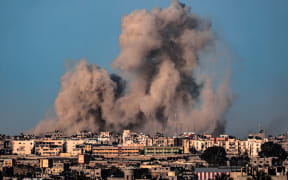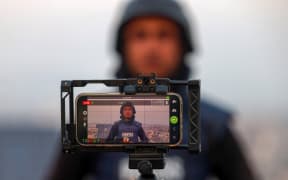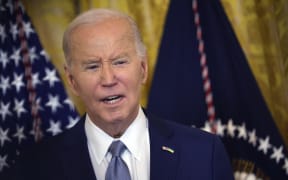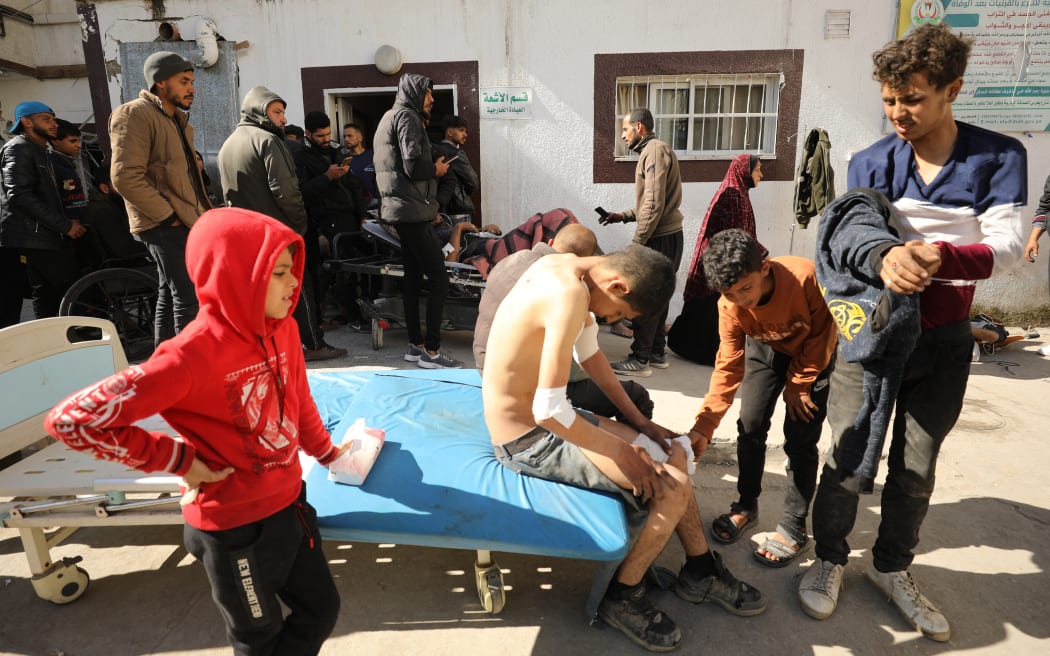
Palestinians receive medical care at Kamal Edwan Hospital in Beit Lahia, in the northern Gaza Strip. Photo: AFP
By Thomas Mackintosh, BBC News
Several countries have joined the UN in calling for an investigation into the deaths of more than 100 Palestinians during an aid delivery in Gaza.
At least 117 people were killed and more than 760 injured on Thursday as they crowded around aid lorries.
UN Secretary General António Guterres condemned the incident and said "desperate civilians" need urgent help.
Hamas accused Israel of firing at civilians, but Israel said most died in a crush after it fired warning shots.
On Thursday, international criticism of Israel mounted with French President Emmanuel Macron saying civilians had been "targeted by Israeli soldiers".
The EU's foreign policy chief, Josep Borell, described the incident as "totally unacceptable carnage".
Reacting to the incident, Guterres wrote on social media: "I condemn Thursday's incident in Gaza in which more than 100 people were reportedly killed or injured while seeking life-saving aid."
"The desperate civilians in Gaza need urgent help, including those in the north where the UN has not been able to deliver aid in more than a week."
On Friday, France, Italy and Germany also called for an independent investigation into the aid convoy deaths.
Gaza's Hamas-run health ministry called the incident a "massacre".
The UN Security Council scheduled a closed-door emergency meeting to discuss the incident, during which Algeria - the Arab representative of the body - put forward a draft statement blaming Israeli forces for "opening fire".
While 14 of the council's 15 members supported the motion, the US blocked it, according to AP news agency, citing the Palestinian UN ambassador Riyad Mansour who spoke to reporters afterwards. US envoy Robert Wood said the facts of the incident remained unclear.
Thursday's incident took place shortly after 4.45am at the Nabulsi roundabout, on the south-western edge of Gaza City.
Ramzi Mohammed Rihan was injured in the stampede and described to BBC Arabic what he saw.
He said: "We were informed that a shipment of flour would arrive through Al-Nabulsi Street and that there would be no shooting.
"We went to get flour to feed our children. We went to Nabulsi Street and before the trucks arrived there was gunfire.
"As the trucks entered, we headed towards them, and as we tried to get the first bag of flour out of the truck, they began to fire at us."
Rihan said he was carried to the hospital on a cart and that his X-rays have been delayed due to a lack of electricity.
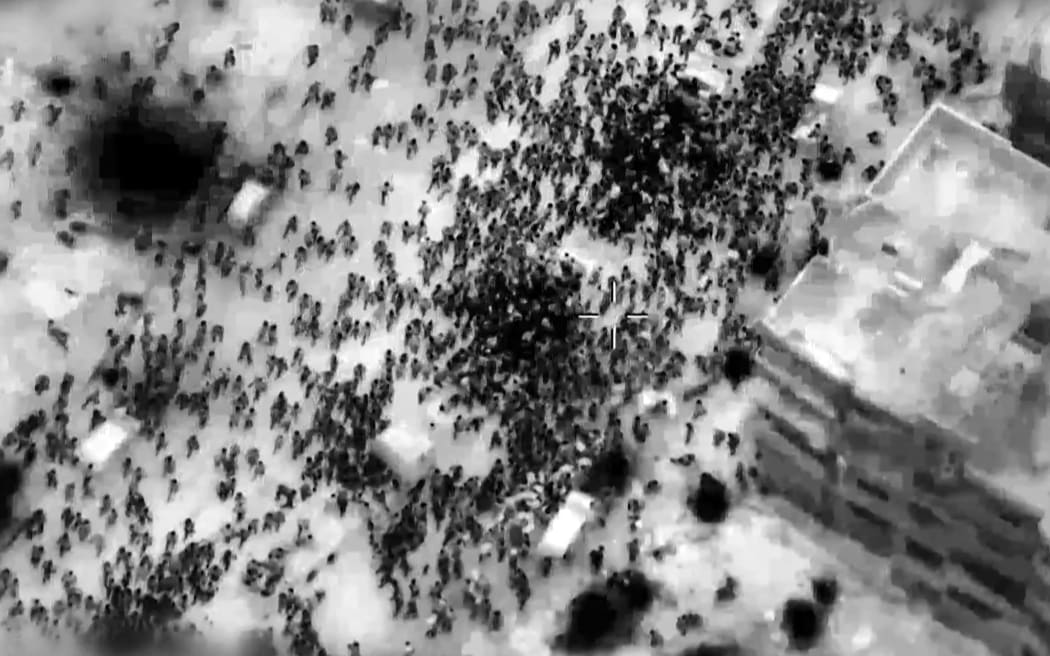
This image grab from a handout video released by the Israeli army on 29 February 2024, shows what the army says are Gazans around aid trucks in Gaza City. Photo: AFP / Israeli Army / Aline Manoukian
Khaled al-Tarawish was also wounded and said his surgery has also been postponed due to a lack of fuel in al-Awada Hospital.
"I went to Nabulsi Street to get a bag of flour," he said. "Because of the crowd I ran under the car, I went to the Awda hospital where they told me that I needed to have an operation but because there was no diesel fuel, they told me the operation would be carried out three days later.
"All I want is to provide the hospital with diesel fuel so that I can undergo the operation and get my treatment."
The convoy of 30 lorries carrying Egyptian aid was making its way north along what the Israel Defense Forces (IDF) described as a "humanitarian corridor" which it said its forces were securing.
IDF chief spokesman, Rear Adm Daniel Hagari, said civilians surrounded the convoy and people began climbing on the lorries.
"Some began violently pushing and even trampling other Gazans to death, looting the humanitarian supplies," he said. "The unfortunate incident resulted in dozens of Gazans killed and injured."
Israeli tanks, he said, "cautiously tried to disperse the mob with a few warning shots" but pulled back "when the hundreds became thousands and things got out of hand".
Another IDF spokesman, Lt Col Peter Lerner, said some civilians approached a checkpoint which was about 70 metres away and ignored warning shots fired by the soldiers there.
He said the soldiers, fearing that some of the civilians posed a threat, then opened fire on those approaching in what he described as a "limited response."
Hamas rejected the IDF's account, citing "undeniable" evidence of "direct firing at citizens, including headshots aimed at immediate killing".
The incident came hours before Gaza's health ministry announced that more than 30,000 people, including 21,000 children and women, had been killed in Gaza since the start of the current conflict on 7 October. Some 7000 were missing and 70,450 were injured, it said.
Gutteres added: "I am appalled by the tragic human toll of the conflict in Gaza - more than 30,000 people reportedly killed and over 70,000 injured.
"I reiterate my call for an immediate humanitarian ceasefire and the unconditional release of all hostages."
The executive director of Médecins Sans Frontières (Doctors Without Borders) in the UK, Natalie Roberts, said delivering aid to a starving population without adequate security was risking disaster.
Speaking to BBC Radio 4's Today programme she said: "We know that there have been very few aid convoys in the last weeks in the north, people have been unable to get anything to eat.
"We know from our own colleagues that they're having to eat animal food, that they go without food for days on end sometimes. And so people are just completely desperate, and the minute you start trying to deliver food to the region without any sort of security for the convoy, then this was always going to happen."
The UN is warning of a looming famine in the north of the territory, where an estimated 300,000 people are living with little food or clean water.
Israeli military launched a large-scale air and ground campaign to destroy Hamas - which is proscribed as a terrorist organisation by Israel, the UK and others - after its gunmen killed about 1200 people in southern Israel on 7 October and took 253 back to Gaza as hostages.
- This story was first published by the BBC.

